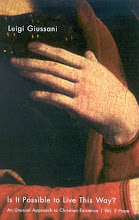[H]is relatively early death wasn’t “tragic.” He was one of the richest people in the world. He spent his money on perpetual childhood and he was perpetually with children not his own.
Meanwhile, in the last ten days, we’ve seen or heard of remarkable people who’ve given their lives for freedom in Iran. We’ve heard of innocents killed because they were in the wrong place at the wrong time. In the last decade, America has lost thousands of heroes in noble causes and thousands of innocent bystanders who were denied the simple joys of life through no fault of their own. Those deaths are tragic, and we’re hard pressed to think of more than a handful of names to put with the long line of the dead.
If anything, Michael Jackson’s life, not his death, was tragic….
I feel sympathy for Jackson’s family and friends who understandably mourn him. But I can’t bring myself to mourn him any more than I mourn the random dead I read about in the paper everyday. Indeed, I confess to mourning him less.
Every channel says this is a sad day for America. I agree. But not for the same reasons.
In response, this comment by Benedict XVI, on the occasion of the end of the Pauline Year, seems particularly relevant to our condition and the condition of our culture:
“Men are often empty inside and thus must grasp for promises and drugs, which end up adding to their inner sense of emptiness,” the Pope explained. “This inner emptiness, man’s inner weakness, is one of today’s great problems. The inner self—the heart’s perceptiveness, the capacity to see and understand the world and man from within, with the heart—must be strengthened. We need reason enlightened by the heart to learn to act in accordance to the truth in love. This cannot be done without an intimate relationship with God, without a life of prayer. We need to meet God, something which is given to us in the Sacraments. And we cannot speak to God in prayer if we do not let Him speak first, if we do not listen to him in the word he gave us.”

